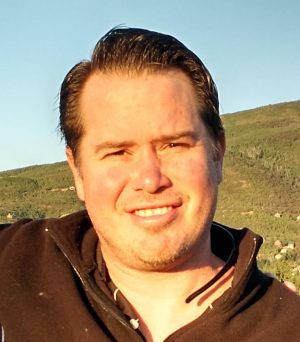By Nicholas Bobadilla

From April 1st through 3rd, students, university representatives, policymakers, and topic experts from around the world will convene at Clinton Global Initiative University (CGI U), a three-day conference hosted by the Clinton Foundation that allows students to jumpstart and share innovative ideas for global change. Since 2007, CGI U has spurred thousands of change-makers to pledge their “Commitments to Action” in one of five focus areas: education, environment and climate change, peace and human rights, poverty alleviation, and public health. “Making a public commitment enhances personal accountability,” says Thato Keineetse, one of dozens of Cal students chosen to participate in the event. Former President Clinton and Chelsea Clinton will oversee the ninth edition of CGI U at UC Berkeley, which will host undergraduate and graduate students seeking to make the commitments that will usher their projects to completion.
The conference will include opportunities to exchange ideas, develop partnerships, network, and apply for funding to launch or expand projects. Universities in the CGI network must pledge at least $10,000 in support to participants, meaning over $750,000 will be made available for students to convert their ideas into action. Since 2008, CGI U participants, formally known as “commitment-makers,” have received $2 million in funding support and have made over 5,500 Commitments to Action. The conference will end with a Day of Action, in which students participate in a community-wide service event alongside local nonprofits or community organizations. This year, commitment-makers will work with Havenscourt Campus in East Oakland, a shared campus of four schools in the Oakland Unified School District that serves over 1500 students. Activities will include urban agriculture, mural painting, leveling books for the library, and cleaning the athletic facility.
CGI U participants undergo a competitive selection process. This year, Cal’s participants are engaged in projects ranging from 3D printing to microfinance to lobbying for LGBTIQ+ legislation. Find out more about them below.
Michelle Nie will employ the skills she has developed as a Business major to launch Māk, a social enterprise that empowers low-income youth by training them to design 3D printed products. Through an intensive, skill-building boot camp, the youth will learn to use 3D printing software. They will then work as interns for Māk, creating consumer products to be sold through the enterprise’s e-commerce website. Profits will be reinvested in future cohorts and more resources. Nie founded Māk alongside fellow business majors Ankita Joshi and Aubrey Larson, who started it as a project for a Social Entrepreneurship course. “I’m excited to learn about the amazing projects my Berkeley peers are working on and to connect and collaborate with students from around the globe,” said Nie.
MBA student Thato Keineetse’s Mo’H2O is committed to alleviating energy poverty and water scarcity in sub-Saharan Africa by making sustainable clean technology solutions more affordable. Mo’H20 will assemble, distribute, lease and service integrated solar water pump systems for low-income smallholder farmers in East and Southern Africa. Using an innovative business model, Mo’H2O will make it easier for people to pay for clean technology, while benefiting from increased productivity driven by a constant supply of water and access to cheap and reliable energy. “I’m excited to meet, share ideas, and work with others who have taken this step to transform their ideals into actions,” said Keineetse.
Big Ideas Finalist and MBA student Sneha Sheth seeks to give low-income mothers in India a leg up on their children’s development and educational readiness via an automated voice call service called Dost. The service provides a mobile platform that combats illiteracy by empowering mothers to deliver early learning experiences to their children. In giving mothers activities that fit into their daily routines, Dost represents a simple, innovative method of cultivating the potential of low-income Indian children. Sheth believes education to be the best way to alleviate poverty.
MBA student Zoe Beck will partner with UC Berkeley to produce and distribute a new MOOC on economic inequality. Former Secretary of Labor Robert Reich will teach the course, which will explore the ongoing economic inequality in the United States, its impacts on the nation’s economy and democracy, and what can be done about it. Intended to inform and engage, the course will feature filmed lectures as well as live interactive forums, and will emphasize steps students can take to make a difference.
Dedicated to alleviating poverty in the Bay Area through financial inclusion, Amanda Ng will work with a technology start-up called Insikt to find banks, insurance companies, retailers, and other businesses in Berkeley and Oakland that target low-income consumers whose credit histories make them ineligible for loans. Ng will lobby businesses to use Insikt’s lending platform, which employs an underwriting algorithm to assess the creditworthiness of potential borrowers, and determines a loan size and interest rate that maximizes repayment rates. Insikt’s efficiency in gauging financial potential, along with its current array of partners, make it a viable and accessible method of building capital among the poor.





